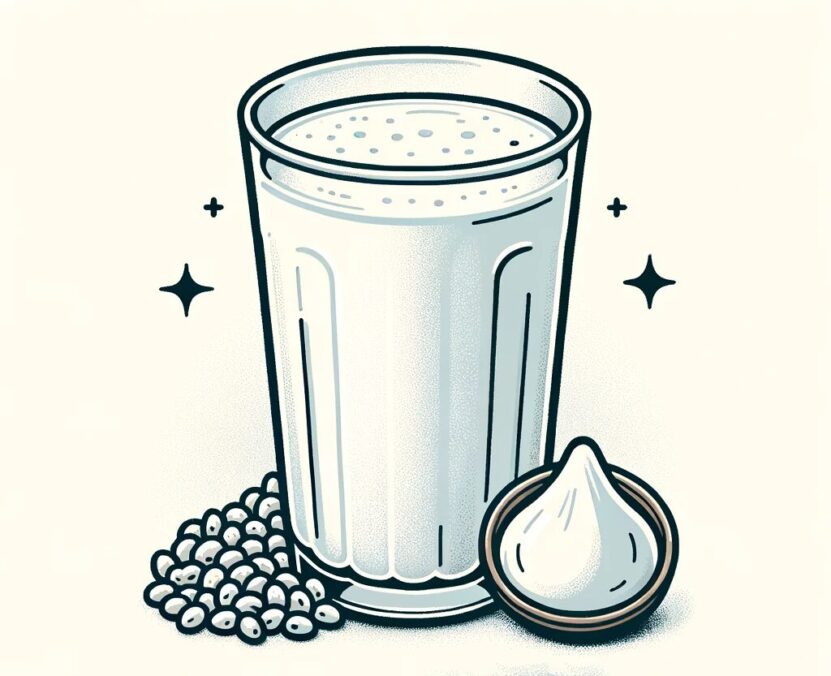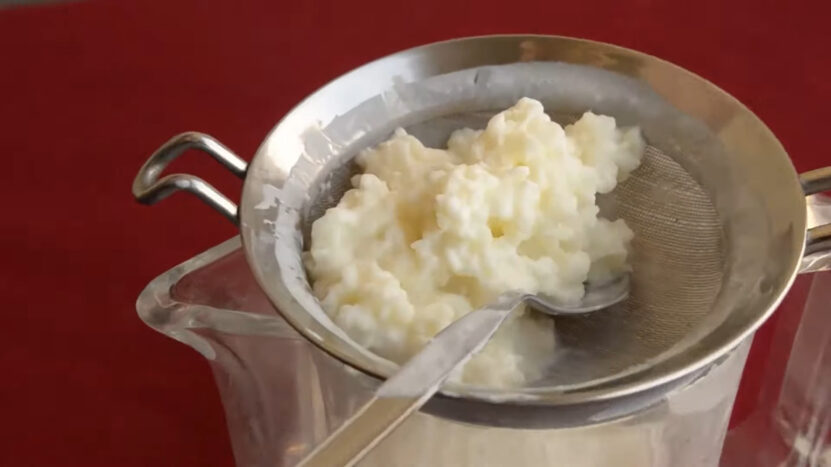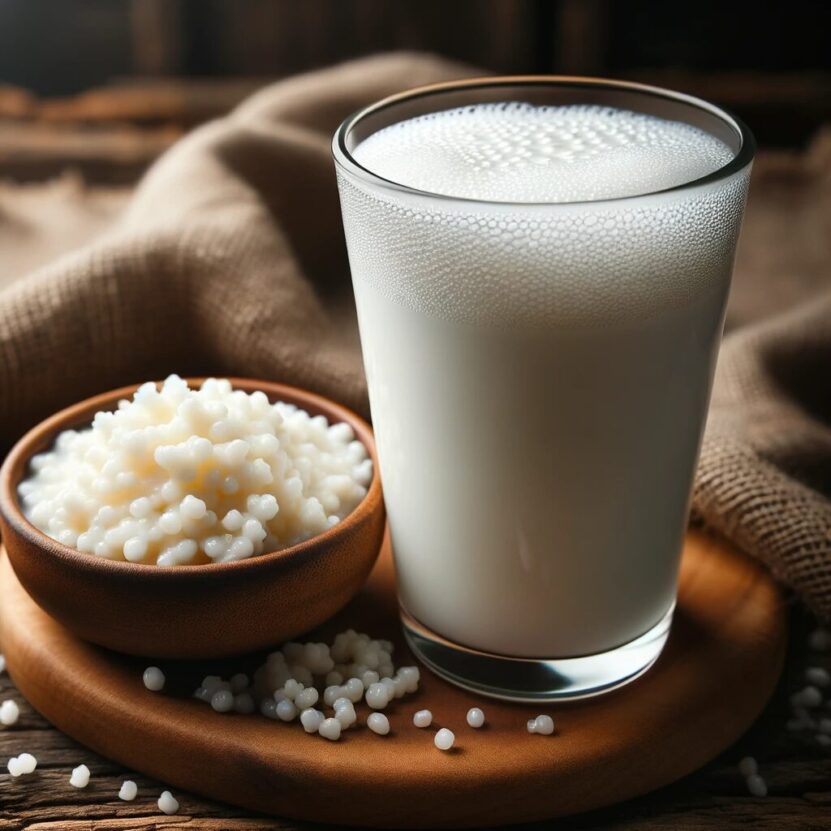You will have heard about the health benefits of yogurt – but you may not be aware of the benefits of drinking Kefir – another fermented food cultured from dairy. Kefir is actually one of the richest sources of probiotics – containing far more ‘good’ probiotic bacteria than yogurt or cheese.
Kefir is actually one of the richest sources of probiotics
The healing qualities and benefits of drinking Kefir have been rumored for centuries – since the origin of the drink in the Caucus mountains that lie between the Black Sea and the Caspian Seas, separating Asia and Europe. The name Kefir actually comes from the Turkish word “keif,” which means “good feeling.”
However, it was not made famous until the 1900s when a Russian scientist and Nobel Prize winner, Ilya Metchnikoff discovered villagers in the Caucasus Mountains were living much longer and were much healthier than the rest of the population. What set them apart was their daily consumption of Kefir rich in probiotic bacteria.

Kefir tastes quite a lot like yogurt but differs in a number of ways. Made from special grains that are made up of bacteria, milk proteins, and yeast.
While it’s most commonly made with cow’s or goat’s milk it can also be made with other forms of milk and milk substitutes, such as coconut milk, soy milk, and even sugar water. As a result of the fermentation process in making kefir, people who are lactose intolerant can also drink kefir.
People who are lactose intolerant can also drink kefir.
Unsurprisingly with Kefir’s well-documented health benefits, it is now getting popular and can be found in most good grocery stores – however, making kefir at home is cheap and easy – AND usually means there are more probiotic bacteria.
Here Are 12 Reasons You Should Drink Kefir Every Day

1. Kefir helps restore a damaged gut
Drinking kefir daily helps increase the proportion of healthy bacteria in your gut – and as a result, improves your overall gut health. Taking Kefir together with a sustained healthy diet high in fiber has been found to improve digestion, and reduce inflammation and symptoms of Inflammatory Bowel Disease, Crohn’s disease, and ulcers.
2. Kefir reduces cholesterol
Kefir helps lower blood lipid levels and harmful fatty acids affecting cholesterol. Kefir enriched with the plant-based compounds phytosterol and stanol has been shown to lower levels of LDL cholesterol in the blood.
3. Kefir is good for the skin
The probiotic bacteria in Kefir help to control undesirable bacteria and pathogens that cause inflammation and infection in the body and are linked with skin conditions including acne, psoriasis, rosacea, and eczema, as well as skin allergies and even anti-aging. Kefir also contains Alpha Hydroxy Acid a common ingredient in skin products to promote a healthy youthful complexion. Kefir is even recommended for burns and rashes having been shown to help wounds heal.
4. Kefir is a natural antibiotic
Lactobacillus kefir, a unique probiotic found in kefir, has been shown to inhibit the growth of harmful bacteria such as salmonella, h-pylori, and e-coli – helping to restore the balance of good bacteria, reduce inflammation, the symptoms of leaky gut and auto-immune diseases.
5. Kefir is better than supplements
A small glass of fresh kefir may contain about 30 different strains of bacteria – and up to 1.5 trillion beneficial bacteria – more than 100 times as many as you’d find a probiotic supplement capsule.
6. Richer in probiotics than yogurt
Kefir contains 3 times as many beneficial bacteria and nutrients as yogurt, including many probiotic strains and species not present in yogurt.
7. Contains essential nutrients
Kefir is loaded with nutrients, including vitamins, minerals, enzymes, and a broad spectrum of amino acids, the building blocks of protein that support optimal body functioning.
8. Kefir is cheap & easy to make
Kefir is simple and easy to make at home – and very cheap! It can be made overnight simply by adding Kefir grains to milk and keeping at room temperature. Kefir can also be made with coconut or even with water & sugar and flavored to suit your preference.
9. Suitable for lactose intolerant
Kefir can be consumed by lactose intolerant, as both the probiotic bacteria and the fermentation process help digest the lactose. Research has even shown that kefir improves lactose digestion and tolerance in adults with lactose malabsorption.
10. Improves bone density
Kefir is rich in phosphorus, calcium, magnesium, vitamin D, and vitamin K2 – necessary for good bone density and heart function. Kefir also contains vitamin K2 for bone health and various chemical compounds that help the body absorb calcium and reduce bone degeneration.
11. A good source of protein
Kefir improves the protein quality of milk and enhances absorption and digestion – which in turn helps reduce hunger, build muscle mass, and improve athletic performance.
12. Improves mood & reduces anxiety
Kefir contains tryptophan – an amino acid that helps raise the levels of serotonin – the happy hormone in the brain that improves your mood and mental well-being.
FAQs
What is the origin of Kefir grains?
Kefir grains are believed to have originated in the Caucasus Mountains, and they have been used for centuries to ferment milk and produce the probiotic-rich drink known as kefir.
How does Kefir taste compared to other dairy products?
Kefir has a tangy, slightly sour taste, somewhat similar to yogurt but with a thinner consistency. Its flavor can vary based on the fermentation time and the type of milk used.
Can Kefir be made with non-dairy alternatives?
Yes, kefir can be made using non-dairy alternatives like coconut milk, soy milk, and even sugar water. The fermentation process and probiotic benefits remain similar.
How long does homemade Kefir last in the refrigerator?
Homemade kefir can last in the refrigerator for about 1-2 weeks. However, its taste may continue to sour over time.
Is Kefir safe for pregnant or breastfeeding women?
While kefir is generally safe, it’s always best for pregnant or breastfeeding women to consult with their healthcare provider before adding any new foods to their diet.
Can children consume Kefir?
Yes, children can consume kefir. However, it’s advisable to introduce it slowly and in small quantities to check for any adverse reactions.
How does Kefir differ from kombucha?
While both kefir and kombucha are fermented beverages rich in probiotics, they are made from different starter cultures. Kefir is made using kefir grains, while kombucha is made from a SCOBY (symbiotic culture of bacteria and yeast).
Final Words
Kefir, with its rich history and numerous health benefits, is a testament to the power of fermented foods. Whether you’re looking to improve gut health, reduce cholesterol, or simply add a nutritious drink to your diet, kefir is a versatile and beneficial choice.
Its rising popularity is well-deserved, and with the ease of making it at home, there’s no reason not to give this probiotic powerhouse a try.
